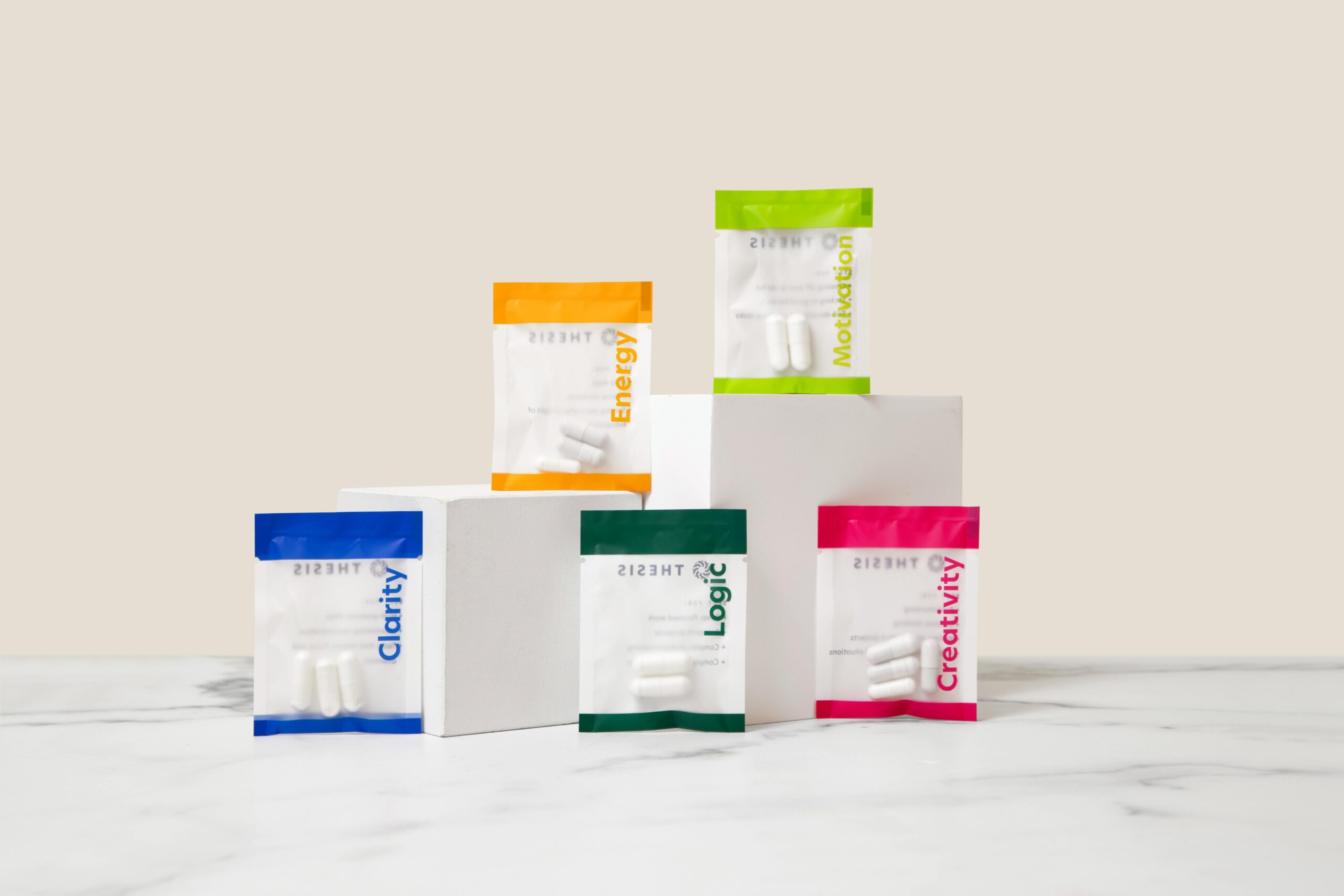Have you ever wondered if there’s a simple, natural way to boost your mental clarity and overall brain health? You’re not alone. Many people are searching for effective, non-pharmaceutical methods to enhance their cognitive functions. One such method that has been gaining interest is the use of niacin, also known as vitamin B3. Niacin isn’t just another supplement; it’s a key player in maintaining good mental health. This article will explore the benefits, uses, and science behind niacin to help you understand how it might be the missing piece in your quest for a sharper mind.
What is Niacin?
Niacin is a form of vitamin B3, an essential nutrient that your body needs to function correctly. Unlike some vitamins, niacin is water-soluble, meaning it’s not stored in your body and needs to be consumed regularly. Niacin helps your body convert food into energy, repair DNA, and produce stress and sex hormones in the adrenal glands. Clearly, it plays a bigger role than you might initially think.
Different Forms of Niacin
There are several forms of niacin, primarily:
- Nicotinic acid
- Nicotinamide (Niacinamide)
- Inositol Hexaniacinate
Each form has distinct characteristics and benefits, but they all contribute to overall well-being in unique ways. While the nicotinic acid form is known for its cholesterol-lowering properties, niacinamide is often lauded for its skincare benefits. Inositol hexaniacinate, a no-flush niacin, is often preferred by those who wish to avoid the infamous niacin flush.
How Niacin Works
Niacin works by assisting in various catalytic reactions in the body. It’s involved in converting nutrients into usable energy, aiding metabolic processes. Additionally, it supports cell signaling, DNA repair, and the production of stress-related hormones. These functions are crucial for keeping your brain in top shape.
The Science Behind Niacin and Mental Clarity
Niacin’s Role in Brain Health
Niacin plays an indispensable role in maintaining brain health. It helps improve cognitive function and has even been linked to reducing symptoms of mental health disorders like depression and anxiety. A deficiency in niacin can lead to neurological symptoms including memory loss, confusion, and even dementia in severe cases. Ensuring you get enough niacin is critical for maintaining mental clarity and preventing cognitive decline.
The Biochemical Pathways
Niacin facilitates the conversion of carbohydrates, fats, and proteins into energy through the Krebs cycle, also known as the citric acid cycle. These energy molecules, primarily NAD (Nicotinamide adenine dinucleotide), are crucial for brain function. NAD acts as a coenzyme in the mitochondria, the powerhouse of the cell, ensuring that the brain has a constant supply of energy to function optimally.
Research Findings
Several studies have highlighted niacin’s positive effects on mental health. One study published in the “Journal of Psychiatry & Neuroscience” found that higher intake of niacin was associated with reduced risk of developing Alzheimer’s disease. Another research project presented in “JAMA Psychiatry” suggested that niacin could help reduce depressive symptoms by influencing serotonin levels in the brain.

Benefits of Niacin for Mental Health
The benefits of niacin for mental health are extensive and well-documented. This section will explore these benefits in detail.
Improved Mood
Niacin contributes to the production of serotonin, a neurotransmitter that plays a crucial role in regulating mood. An adequate level of serotonin can help you maintain a positive outlook and fend off depressive symptoms.
Enhanced Cognitive Function
Niacin assists in the production of neurotransmitters, the chemical messengers in your brain. Adequate levels of these messengers ensure smooth communication between neurons, enhancing your cognitive function and memory.
Reduction in Anxiety
Clinical trials have shown that niacinamide, a form of niacin, can be effective in reducing anxiety. It interacts with benzodiazepine receptors, which are implicated in anxiety regulation, making them more responsive to the calming effects of natural GABA neurotransmitters.
Protection Against Neurodegenerative Diseases
Niacin has been linked to neuroprotection against diseases such as Alzheimer’s and Parkinson’s. By maintaining adequate NAD levels, niacin helps protect neurons from oxidative stress and inflammation, which are key factors in neurodegenerative diseases.
Support for Sleep
Adequate levels of niacin can help regulate sleep patterns. Niacinamide helps produce and metabolize serotonin, which is later converted into melatonin, the hormone responsible for regulating sleep-wake cycles. Better sleep often results in better mental health overall.
Potential Side Effects and Considerations
While niacin offers numerous benefits, it’s essential to be aware of potential side effects. Understanding these will help you make an informed decision on whether niacin is right for you.
Niacin Flush
One of the most commonly reported side effects is the “niacin flush.” It occurs when blood vessels dilate, causing a sudden and often uncomfortable flushing of the skin. While it’s generally harmless, it can be alarming if you’re not expecting it.
Gastrointestinal Issues
Some people may experience nausea, vomiting, or stomach cramps when taking niacin. It’s often recommended to take the supplement with food to minimize these effects.
Liver Health
High doses of niacin can potentially cause liver toxicity. If you’re considering high doses for therapeutic purposes, it’s crucial to consult a healthcare provider for regular liver function monitoring.
Drug Interactions
Niacin can interact with other medications, including blood pressure medications, blood thinners, and diabetes drugs. Always consult your healthcare provider to ensure there are no contraindications with any other medications you may be taking.
Dosage Considerations
It’s essential to take the correct dosage to reap the benefits without experiencing adverse effects. The general recommended daily intake for adults is between 14-16 mg, but therapeutic doses can range significantly higher. Here’s a quick guide:
| Age Group | Recommended Niacin Intake |
|---|---|
| Children (1-3 years) | 6 mg/day |
| Children (4-8 years) | 8 mg/day |
| Adolescents (9-13) | 12 mg/day |
| Adults (Men) | 16 mg/day |
| Adults (Women) | 14 mg/day |
| Pregnant Women | 18 mg/day |
| Breastfeeding Women | 17 mg/day |
Remember, these recommendations are for general health. If you have specific mental health needs, your healthcare provider may suggest a higher dose.

How to Incorporate Niacin into Your Routine
Dietary Sources
Getting niacin from food is an excellent way to meet your daily requirement. Here are some niacin-rich foods you can add to your diet:
| Food | Niacin Content (mg per serving) |
|---|---|
| Chicken breast (3 oz) | 8.9 mg |
| Tuna (3 oz) | 11.3 mg |
| Turkey (3 oz) | 7.3 mg |
| Salmon (3 oz) | 8.5 mg |
| Brown rice (1 cup) | 2.6 mg |
| Peanuts (1 oz) | 3.8 mg |
| Avocado (1 medium) | 3.5 mg |
| Mushrooms (1 cup) | 2.5 mg |
Incorporating these foods into your diet can help you naturally boost your niacin intake.
Supplements
If you find it challenging to meet your niacin needs through diet alone, supplements are a convenient option. Niacin supplements come in various forms, including immediate-release, extended-release, and no-flush options. Consult with a healthcare provider to determine the best type and dose for your specific needs.
Combining with Other Nutrients
Niacin works well with other B vitamins, especially in supporting mental health. B-complex supplements are a popular choice for those looking to ensure they’re getting a full spectrum of B vitamins. This synergistic approach can offer more balanced and effective support.
Real-Life Experiences
Hearing from others who have benefited from niacin can be encouraging and informative. Many people have experienced remarkable improvements in their mental health after incorporating niacin into their routines.
Personal Testimonials
Jane, 45: “I started taking niacinamide to help with my anxiety. Within a few weeks, I noticed a significant reduction in my anxiety levels. I feel calmer and more balanced.”
Paul, 52: “After struggling with mild depression for years, my doctor suggested I try niacin. It took some time, but after a few months, I feel more positive and focused.”
Clinical Expert Opinions
Dr. Sarah Williams, Psychiatrist: “Niacin has shown promising results in improving mood and cognitive function. While it’s not a standalone treatment, it can be a valuable addition to a comprehensive mental health plan.”
Dr. Emily Adams, Nutritionist: “Niacin is crucial for overall brain health. I recommend it to many of my clients, especially those with dietary restrictions, to ensure they’re getting adequate levels of this important nutrient.”

FAQs About Niacin
How long does it take to see the effects of niacin?
Typically, you’ll start noticing the benefits of niacin within a few weeks of consistent use. However, it can take up to a few months for the full effects to become apparent.
Can I take niacin with other medications?
Always consult your healthcare provider before combining niacin with other medications. Some interactions can affect the efficacy of both the niacin and other drugs.
Is it safe to take high doses of niacin?
High doses of niacin should only be taken under medical supervision due to the potential for serious side effects, including liver damage and gastrointestinal issues.
What is the difference between niacin and niacinamide?
Niacin and niacinamide are both forms of vitamin B3, but they have different properties. Niacin can cause a flush, whereas niacinamide generally does not. Both forms are effective, but niacinamide is often preferred for those who wish to avoid the niacin flush.
Do I need a prescription for niacin supplements?
No, niacin supplements are available over the counter. However, you should consult a healthcare provider for guidance on the appropriate dosage and to discuss any potential risks.
Conclusion
Niacin offers a promising, natural way to support your mental health and cognitive function. Whether you choose to incorporate it through diet, supplements, or a combination of both, understanding the benefits and potential risks is crucial for making an informed decision. As with any supplement, consulting a healthcare provider to tailor a plan to your specific needs is always the best approach. With the right guidance and information, niacin could be the key to unlocking a clearer, healthier mind.
